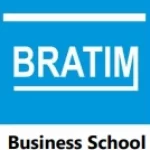Popular Instructors
All ACCA Courses
ACCA December Lectures for March Exams (AA-Audit and Assurance (Fundamental, Applied Skills))
This module focuses on the principles and practices of audit …
What you'll learn
Understand the purpose, objectives, and scope of audit and assurance engagements.
Apply International Standards on Auditing (ISAs) to various audit scenarios.
Identify and evaluate risks of material misstatement in financial statements.
Plan and conduct audit procedures, including substantive testing and internal control assessments.
Prepare and present clear and accurate audit reports.
Address ethical issues and professional responsibilities in the context of audit engagements.
ACCA December Lectures for March Exams (AAA-Advance Audit and Assurance (Strategic Professional, Optional))
This advanced-level course provides an in-depth understanding of audit and …
What you'll learn
Plan, manage, and supervise complex audit and assurance engagements, including group audits and specialized audits.
Evaluate and respond to risks associated with financial reporting and assurance engagements.
Apply professional and ethical standards to resolve challenges in auditing and assurance.
Assess the impact of emerging issues such as sustainability, digital transformation, and global regulations on audit practices.
Provide advisory services on corporate governance, risk management, and internal controls.
Deliver high-quality audit reports tailored to stakeholders' needs.
ACCA December Lectures for March Exams (AFM-Advance Financial Management (Strategic Professional, Optional))
The Advanced Financial Management (AFM) module is designed for students …
What you'll learn
Evaluate complex investment and financing decisions using advanced financial management techniques.
Develop and implement financial strategies to achieve long-term organizational goals.
Analyze risks, including currency and interest rate risks, and apply hedging techniques.
Appraise the financial implications of mergers, acquisitions, and corporate restructuring.
Understand and apply theories of capital structure and dividend policies.
Assess the impact of global financial markets on strategic financial decisions.
Provide expert financial insights for corporate strategy and performance optimization.
ACCA December Lectures for March Exams (APM-Advance Performance Management (Strategic Professional, Optional))
The Advanced Performance Management (APM) module is tailored for individuals …
What you'll learn
Design and implement performance management systems aligned with organizational strategy.
Evaluate and apply advanced management accounting techniques to drive business performance.
Use data analytics to inform strategic decision-making and identify performance trends.
Assess the effectiveness of performance measurement and control systems in achieving objectives.
Address complex, real-world performance challenges in dynamic business environments.
Provide actionable insights to enhance value creation and stakeholder satisfaction.
ACCA December Lectures for March Exams (ATX-Advance Taxation (Strategic Professional, Optional))
The Advanced Taxation (ATX) module provides a comprehensive understanding of …
What you'll learn
Apply advanced principles of taxation to complex scenarios, including corporate, personal, and international tax cases.
Formulate effective tax planning strategies to optimize tax liabilities for individuals and businesses.
Analyze the impact of tax policies on business decisions and stakeholder interests.
Manage tax risks and ensure compliance with international tax regulations.
Address ethical considerations and demonstrate professionalism in tax advisory roles.
Provide expert guidance on mergers, acquisitions, and corporate restructuring from a tax perspective.
ACCA December Lectures for March Exams (BT-Business Technology (Fundamental, Applied Knowledge))
The Business Technology (BT) module introduces students to the role …
What you'll learn
Understand the role and functions of businesses in the global economy.
Evaluate the influence of technology on business processes, operations, and competitive advantage.
Explain organizational structures, governance, and the role of stakeholders.
Assess the impact of external and internal environments on business performance.
Recognize the role of innovation and information systems in business success.
Apply basic management principles to improve efficiency and achieve organizational goals.
ACCA December Lectures for March Exams (FA-Financial Accounting (Fundamental, Applied Knowledge))
The Financial Accounting (FA) module introduces the fundamentals of financial …
What you'll learn
Understand and apply the principles of double-entry bookkeeping.
Prepare financial statements for different types of entities, including sole proprietorships, partnerships, and companies.
Apply International Financial Reporting Standards (IFRS) to basic financial reporting scenarios.
Analyze and interpret financial statements to assess organizational performance.
Understand the conceptual framework of financial reporting and its relevance to decision-making.Understand and apply the principles of double-entry bookkeeping.
Prepare financial statements for different types of entities, including sole proprietorships, partnerships, and companies.
Apply International Financial Reporting Standards (IFRS) to basic financial reporting scenarios.
Analyze and interpret financial statements to assess organizational performance.
Understand the conceptual framework of financial reporting and its relevance to decision-making.
ACCA December Lectures for March Exams (FM-Financial Management (Fundamental, Applied Skills))
The Financial Management (FM) module builds on fundamental accounting concepts …
What you'll learn
Apply financial management techniques to solve problems related to investment appraisal, financing decisions, and financial analysis.
Analyze and interpret financial statements for decision-making purposes.
Evaluate and manage risk in financial decision-making, including currency and interest rate risk.
Understand the principles of capital structure and dividend policies.
Calculate the cost of capital and use it for investment and financing decisions.
Manage working capital effectively to improve liquidity and operational efficiency.
- 1
- 2









